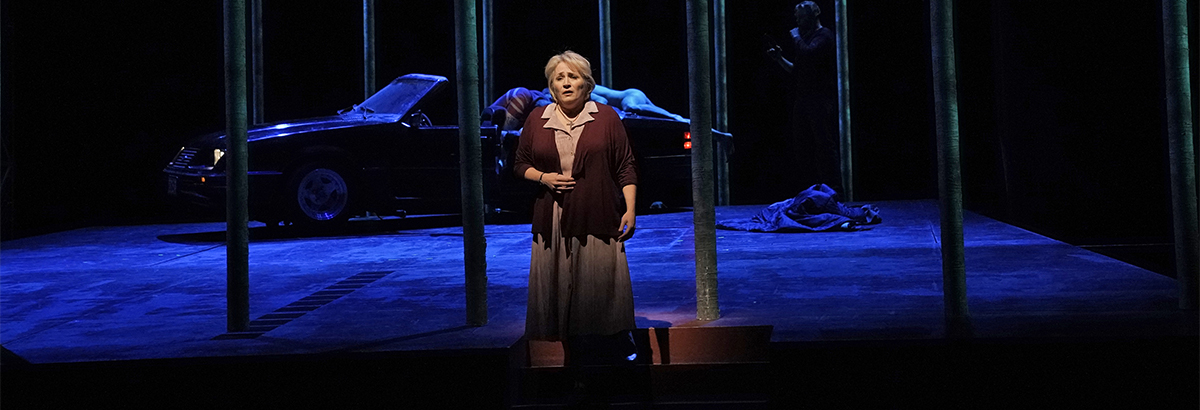January 15, 2020
The power of opera and how it can change your life
"True drama results from the collective impulse of all the arts to communicate in the most immediate way with a collective public. In this Drama, each separate art can only bare its utmost secret to their common public through a mutual connection with the other arts; the purpose being that each separate branch of art can only be fully attained by the reciprocal agreement and co-operation of all the branches in their common message." (Richard Wagner, The Art-Work of the Future)
"Work, work, work, work, work, work." (Rihanna, ANTI)
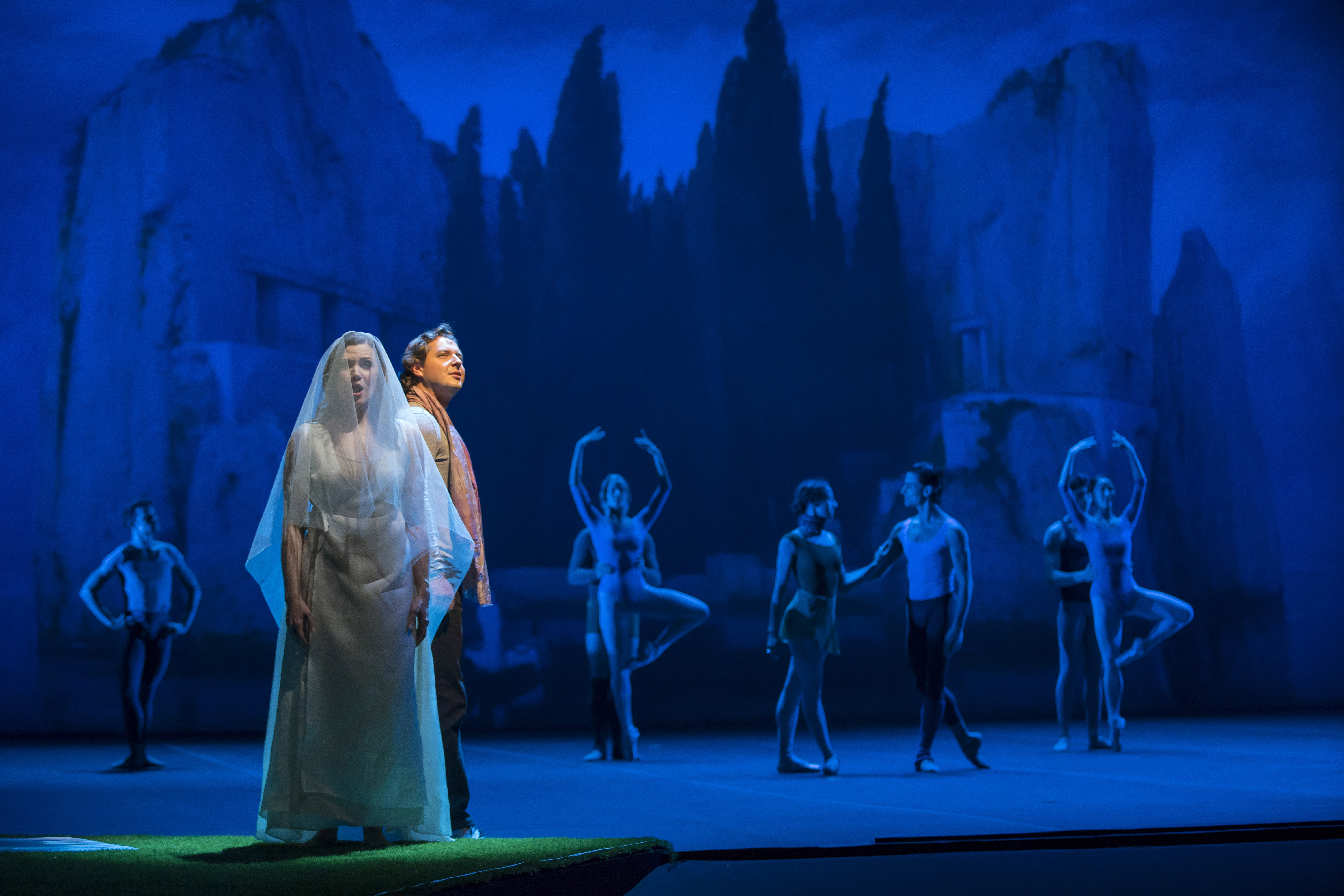
The 2017 production of Gluck's Orphée et Eurydice marked the first collaboration between two of Chicago's most storied arts institutions: Lyric Opera of Chicago and The Joffrey Ballet.
Opera has conjured images of grandeur from its very beginnings in late-16th-century Florence, but it's worth remembering that the word "opera" itself simply means "work" in Italian. The labor of visionary composers and librettists continues to reward us today, whether we go to the opera as first-timers or veterans, with rigorous attention or tremendous relaxation.
Richard Wagner considered each of his mature operas a Gesamtkunstwerk – literally, a "whole art work." Indeed, one of the best reasons to attend performances by a company like Lyric Opera of Chicago is to hear great voices accompanied by a full orchestra while viewing the finest in design and stagecraft. In a modern age where life can feel so partitioned, opera's generous, encompassing riches are more enticing and necessary than ever.
I first attended a Lyric performance in 1994, hearing Sir Andrew Davis conduct the great British soprano Dame Felicity Lott in the company premiere of Richard Strauss's Capriccio. I wanted to hear Aida as my first opera, but my grandmother considered it too long for a recent bar mitzvah boy, so she chose the shortest opera of the season. Dame Felicity's singing was so rapturous and the orchestra was so textured that I was hooked for life (even if, at 13, I didn't necessarily follow Strauss and librettist Clemens Krauss's argument about the relative weights of music, text, dance, and theater in the creation and success of an opera). The power of opera is so immense that I felt these concerns on a subliminal level, and I've been thinking about them ever since.
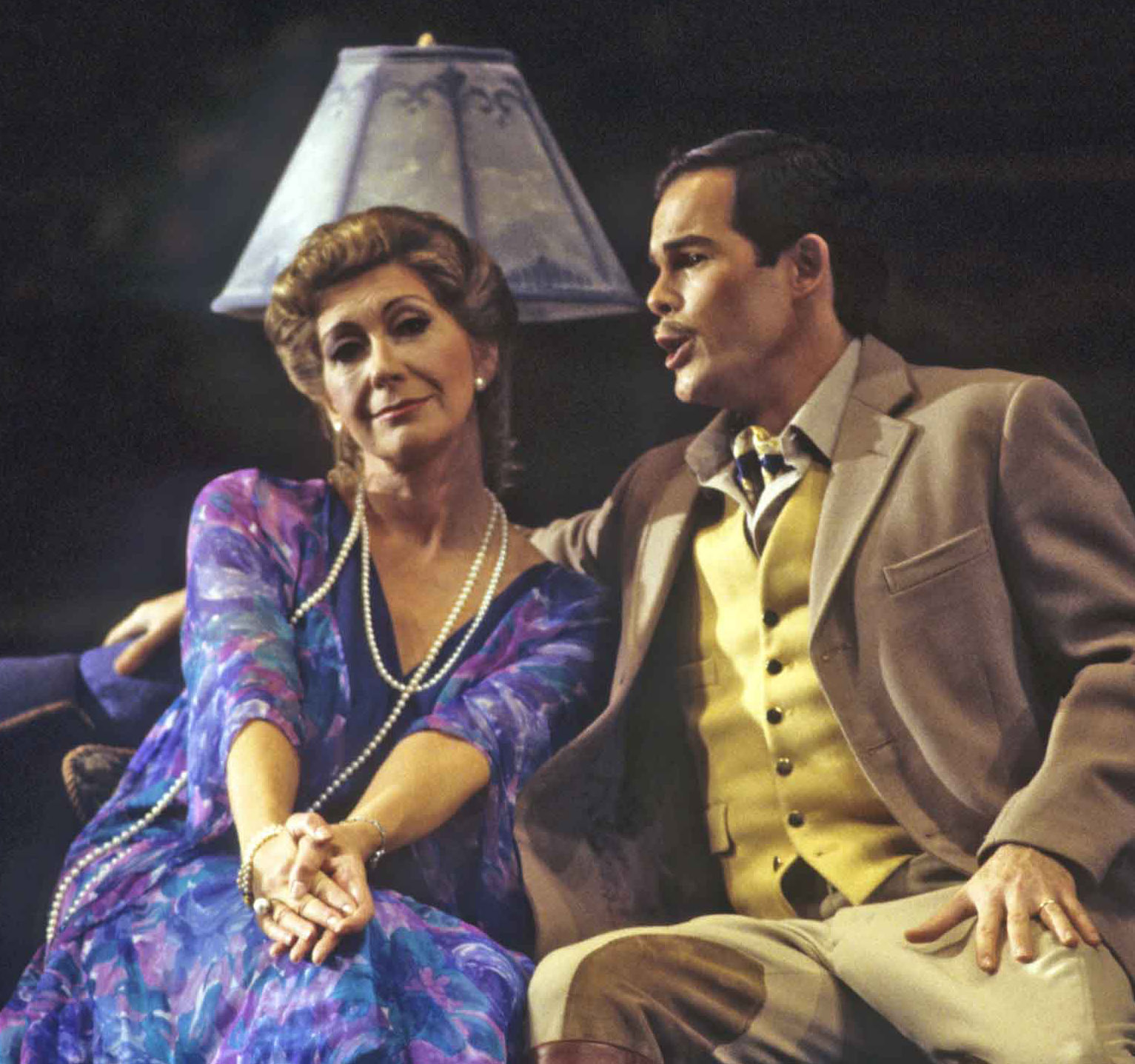
In Strauss's Capriccio, the artistry of Dame Felicity Lott (pictured here as Countess Madeleine, with Gerald Finley as the Count) captivated this article's author in his first Lyric performance in the 1994/95 Season.
Getting an early start with opera taught me so many lessons about life that have sculpted me as person and prepared me for many of the important cultural conversations we are having in our society today. Speaking of Wagner, opera showed me that sometimes complicated people do exquisite things. While the inverse – wonderful people doing disagreeable things – is also a reality, we as modern humans can have a much harder time processing art that moves us when its creator holds radically different views from our own. Studying Wagner's monumental, illuminating scores while grappling with his bigoted writings compelled me to start making my own choices about how to interact with these kinds of complications in art and in life.
Opera also taught me about the glory of multiple interpretations. Each time we view Don Giovanni or La bohème or Elektra, these masterworks offer us new lessons. In productions as high-caliber as the ones Lyric presents, innovative directors are allowed the latitude to explore afresh what a work has to say. These artists and their explorations of these pieces teach us radical flexibility and openness, truly essential human skills.
When we attend the opera, we're asked to practice mindfulness, presence, patience, and trust as listener-viewers. Master composers are expert at manipulating time, and an hour of music can feel short, long, blissful, harrowing – whatever the drama demands. The permission to release the anxieties and pressures of daily life and disappear into the realms of mystery and fantasy is a tremendous gift that opera gives us whenever we choose to accept it.
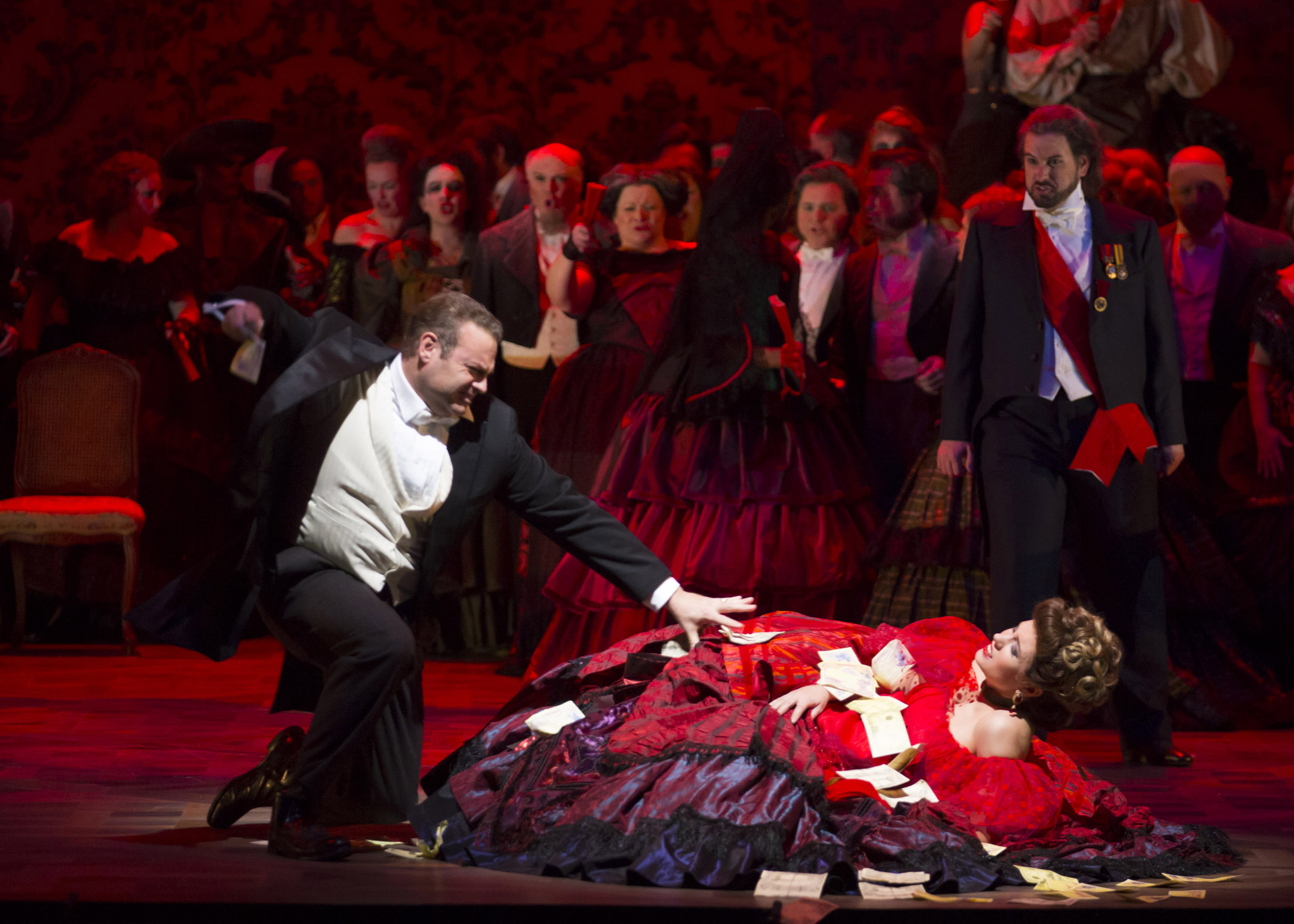
Unforgettably powerful drama has been evident in opera throughout its history, in classics like Verdi's La traviata (pictured here) all the way to modern works like Heggie's Dead Man Walking.
Opera also offers us a powerful mirror to see ourselves and the world in which we live. From La traviata and Carmen to this season's Dead Man Walking, opera concerns itself with the most pressing human matters like love, death, violence, hope, faith, courage, and redemption. While opera's stories do include monarchy and deities, they also offer so many beautiful portraits of regular humans living and dying with admirable dignity, grace, humor, and wit. There are so many moments in my life, both of joy and of adversity, when I've thought, "What would Fidelio's Leonore do? How would the title character of The Marriage of Figaro handle this?"
The first time I saw Mozart's opera, I was obsessed not with the valet Figaro, but with the page Cherubino – not just because the character was around my age, but because (this being a trouser role) he was a he and he was also a she. Watching Susanne Mentzer, a female-bodied singer, explore the psychology of a male-bodied character who is sometimes dressed in traditionally male clothes and sometimes dressed in traditionally female clothes, was fascinating, thrilling, and incredibly sexy. Unfortunately for Cherubino, most of his sexual feelings are unconsummated. However, I soon saw my first performances of Strauss's Der Rosenkavalier and Janácek's The Cunning Little Vixen, both of which feature long romantic encounters between two sopranos (human in the case of Strauss and animal in the case Janácek), set to the most ravishing music I'd ever heard. From the performances of 18th-century castrati to today's trailblazing transgender opera singers, this art form reminds us that humans of all gender expressions have always existed, and we're so privileged to hear their songs.
From the performances of 18th-century castrati to today's trailblazing transgender opera singers, this art form reminds us that humans of all gender expressions have always existed, and we're so privileged to hear their songs.
Music ennobles and elicits empathy, and opera encourages us to engage with and see the full humanity in people who may seem to be nothing like us. Long before film began to have conversations about representation, opera included characters from all over the globe. From my home in Evanston, I was able to travel to ancient Rome and Egypt, medieval Byzantium and Russia, Gold Rush California, turn-of-the-last century Japan, and even the moon! Early exposure to the different languages of opera helped stretch my ear and my brain, and so much of what I know about history and geography comes from studying opera. Unfortunately, the opera business has not always been inclusive about casting artists who hail from all of these wonderful places. Leontyne Price, my very favorite diva, said, "I am here, and you will know that I am the best and will hear me." It's my hope that as opera moves forward, we'll honor Miss Price's words and Lyric Opera will continue to be an industry leader in welcoming great singers of all races, as well as all genders, sexualities, religions, and physical abilities.
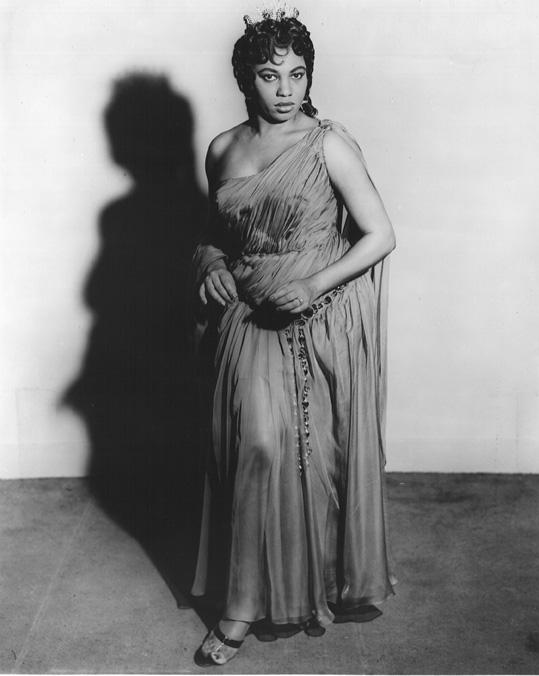
Doug Peck's favorite diva, Leontyne Price, in the title role of Massenet's Thaïs at Lyric, 1959.
Leontyne Price is one of the many great women who has sung legendary performances in Chicago. Opera celebrates the Divine Feminine – indeed, the much-maligned Italian word "diva" literally means "goddess" – and from Maria Callas and Giulietta Simionato in the very first season 65 years ago to Ana María Martínez and Christine Goerke this season, Lyric has been a beloved home to so many important female voices, both onstage and in leadership roles. This season, Lyric presents an important new opera by a female composer – something I hope to see a lot more often.
Inspired by events of right now, Jeanine Tesori and Tazewell Thompson's Blue tells the stories of families and communities who have suffered loss at the hands of police violence. Tesori's score includes sounds we would expect at the opera, as well as those more traditionally associated with gospel and jazz idioms. In Verdi's day, there was no separation between opera and popular music. The songs from his operas were instant hits, sung and played by everyone, and the stories of his operas inspired the people of Italy to find pride and power in their national identity. Thompson and Tesori are firmly in that tradition and our current moment with a work like Blue, and it's so thrilling and vital that Lyric is presenting it.
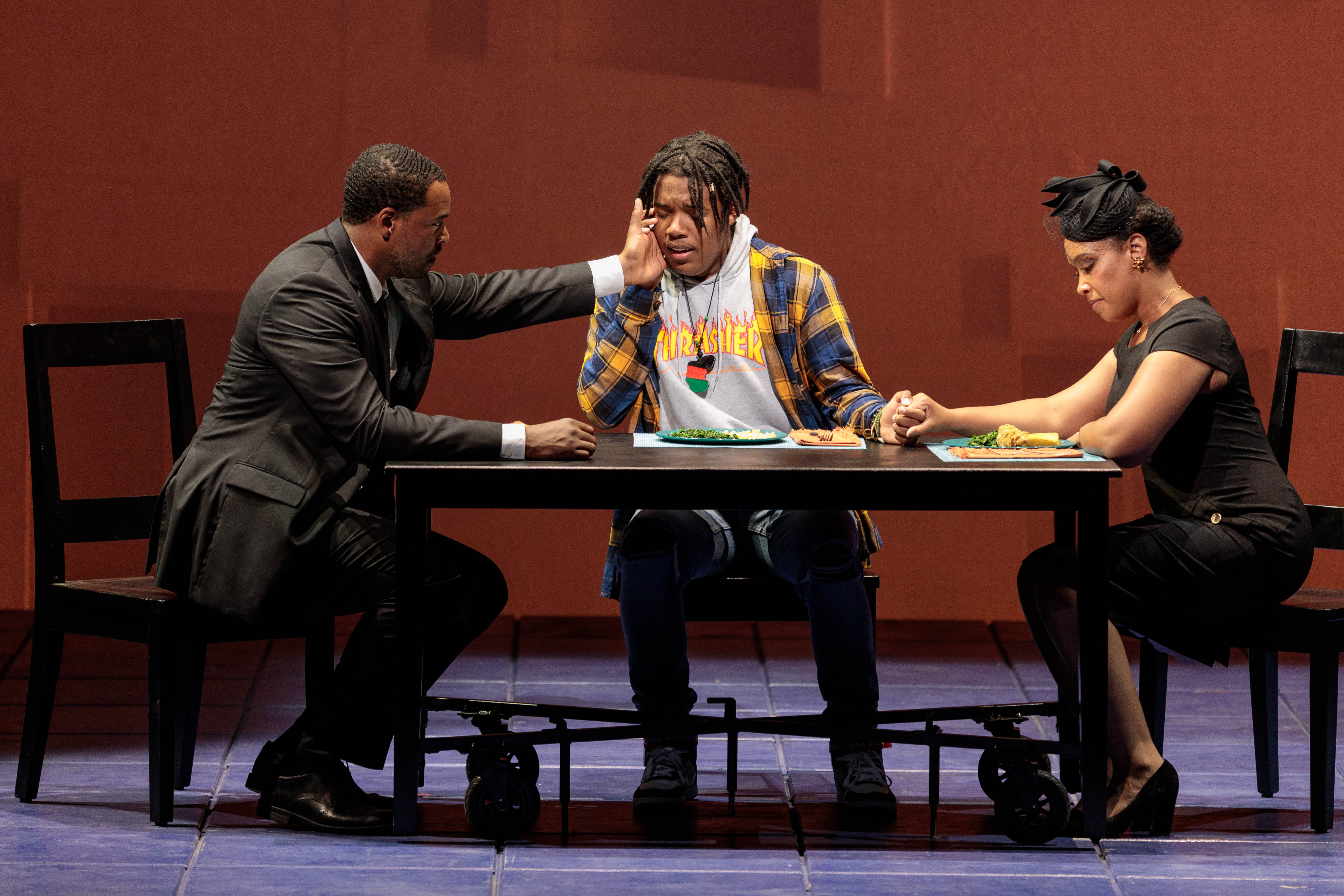
Truly an opera for our time: Jeanine Tesori and Tazewell Thompson's Blue.
The comingling of genres was also reflected in Lyric's Chicago Voices initiative, which celebrated all the different sounds and singers which make Chicago so unique. One of the absolute highlights of my life so far was partnering with Renée Fleming and Cayenne Harris to present the Chicago Voices Gala Concert at Lyric in 2017. Duke Ellington famously said, "There are two kinds of music. Good music, and the other kind." Subsequently seen nationwide on PBS, the Chicago Voices concert celebrated an incredibly rich heritage of good music and great voices from opera, jazz, folk, rock, hip-hop, musical theater, blues, and gospel. The opera house that night proved an inclusive space for all of these artists as we celebrated the power of the human voice and the magical, healing alchemy of collaboration. From my lucky spot at the piano, I truly felt the mighty power of what humans can achieve when we honor and acknowledge our diverse backgrounds and strengths and combine them to make something greater. Our final song that evening was Jason Robert Brown's anthem, "Coming Together." As the ensemble of world-class soloists blended with the Trinity United Choir to sing "Stand up! Hold on! And swear you won't let go!", the atoms inside the Lyric Opera House shifted. Composers manipulate time, and they also manipulate energy. And that's what happens in opera at its best: sound and sight and feeling fuse into the kind of universal, undivided love and art that Wagner described.
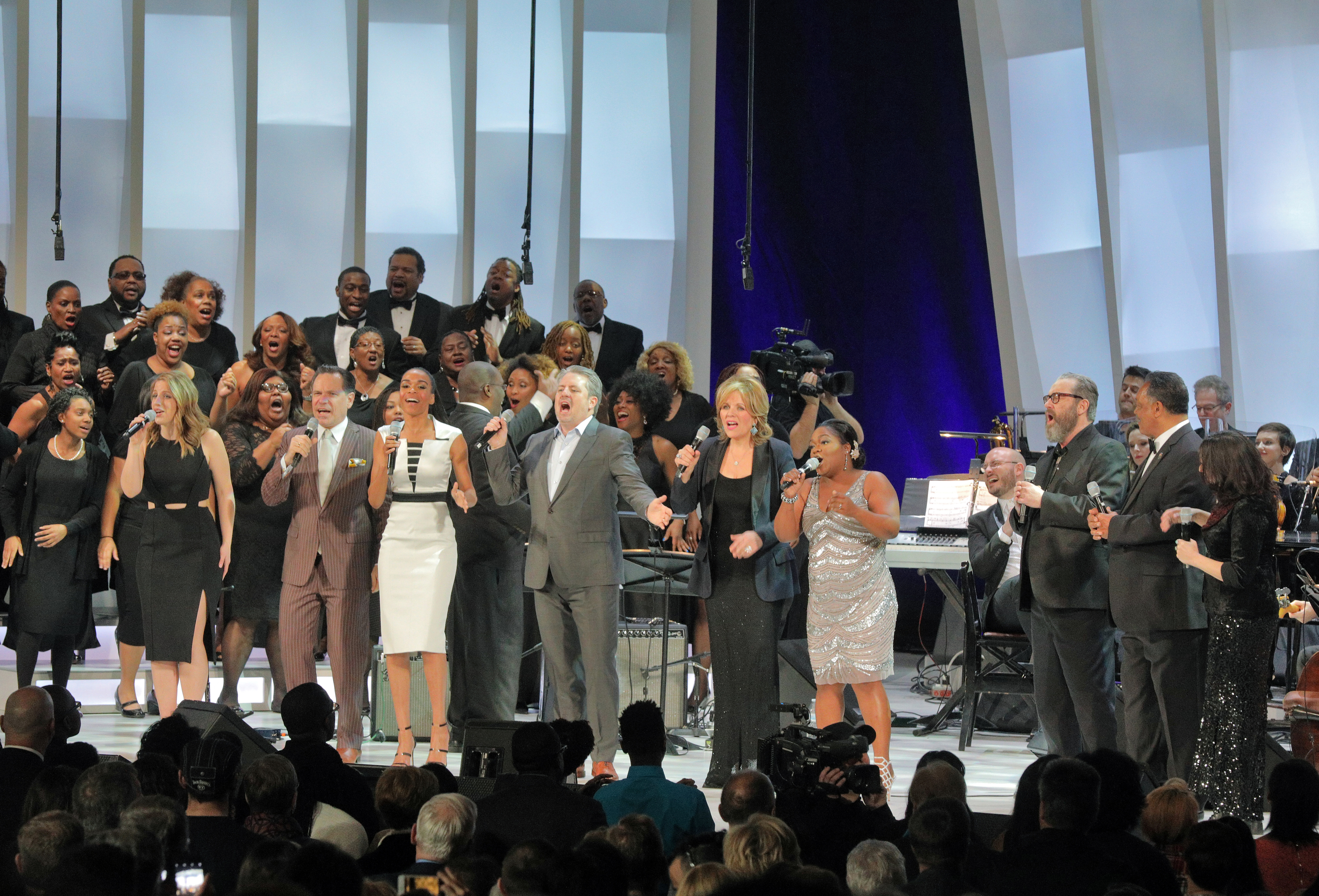
"The atoms inside the Lyric Opera House shifted" at Lyric's 2017 Chicago Voices concert. Among the artists were (foreground, left to right) Jessie Mueller, Kurt Elling, Michelle Williams, Matthew Polenzani, Renée Fleming, Shemekia Copeland, and The Handsome Family.
As an opera-loving millennial, I've had experiences with friends that run the gamut from "Doug, that's your thing, I have no interest" to "I've always wanted to go to the opera, but I don't know where to start" to "You only have 37 recordings of Tosca?! I have 50." Thankfully, opera is vast enough to offer something to all of these humans, and another life lesson that it teaches us is that you get the most out of it when you open yourself to its possibilities.
If you want to listen to beautiful voices, come to the opera.
If you want to hear a glorious orchestra, come to the opera.
If you want to see inventive stagecraft and design, come to the opera.
If you want to see passionate acting and thrilling dancing, come to the opera.
If you want to experience storytelling enriched by great music, come to the opera.
If you want to wear a fabulous outfit and see and be seen while drinking the best champagne, come to the opera.
If you want to engage with the politics and philosophies of the past, come to the opera.
If you want to feel the spirit of our current moment, come to the opera.
Whether you want to arrive a complete innocent like the hero of Parsifal or an enlightened sage like Sarastro in The Magic Flute, come to the opera.
Those of us who make music have been putting in a lot of work, work, work, work, work, work so that you can be transported by this glorious, unique art form. We hope you join us soon and often.
Doug Peck, a six-time Jeff Award winner, has been a music director, conductor, and arranger for every major Chicago theater, while also establishing himself with many other distinguished companies throughout the U.S. He serves as music director for the September 2020 For the Love of Lyric virtual concert.
This article originally appeared in the Madama Butterfly program in February 2020.
Photos: Karli Cadel, Ken Howard, Dan Rest, Todd Rosenberg, Nancy Sorensen, Cory Weaver
